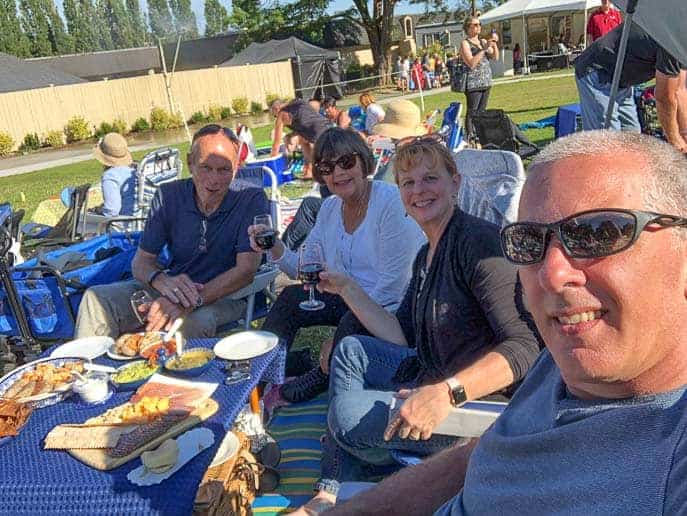Because we associate food with everything!
It is so hard to stick to a diet, and not cheat. It’s hard to change your eating habits to healthier ones because FOOD IS SOCIAL. Food is love, food is caring and comfort. Someone dies, we give them food. Someone gets married, we celebrate with food. Someone has a baby, we have a baby shower with food. Special date with spouse – it most likely involves food. Get togethers and holidays always involve food. Food is an important part of every culture and celebration.
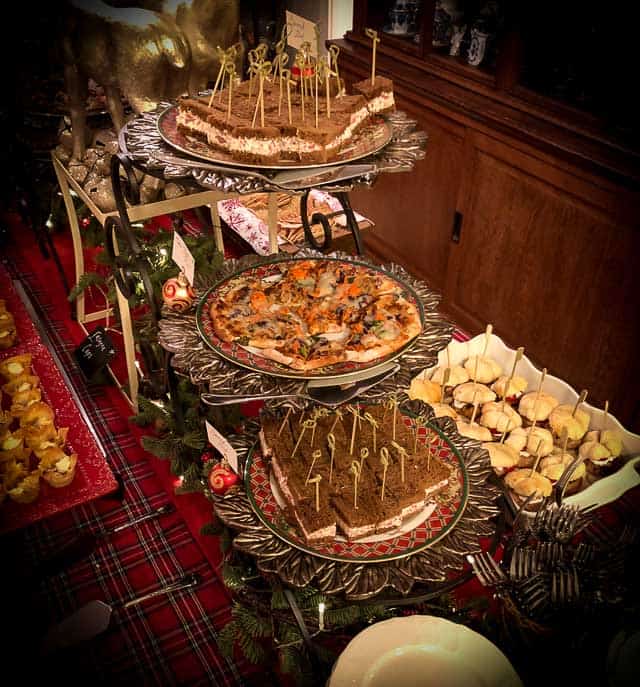
Food:
- Food is comforting
- Food is social
- Food is emotional
- Food is involved with every celebration
- Food is an important part of every culture
Food addicts and the social pressure of eating
For alcoholics, you can never have a drink the rest of your life, but for food addicts, you still have to eat. You need to figure out how to moderate food if you want to succeed at weight loss and maintenance. Learning to say no can be very hard especially when friends and family are “food pushers.” “Oh, I made this especially for you! You have to try just one bite!” These food pushers make it hard to stick to a diet and not cheat.
Moderation is the key to success
Some people are good at moderating food (I’ll only have one bite of dessert), while others of us tend to binge if given our favorite trigger food. For some it may be just easier to say, “I’m giving up soda. No more.” Do what works for you. Try to eat healthy at least 80% of the time, then the other 20% will work itself out.
What can we do to break these food associations?
So what can we do with all of these associations with food? Let’s face it, it can be very hard to stick to a diet and not cheat especially when others around us aren’t even trying to pay attention to what they eat.
Learn to moderate, learn to eat healthier, splurge on occasion but eat healthy most of the time.
Healthy tips to break food associations:
- Make small changes where you can and do your best in times of social gatherings and occasions.
- Avoid social occasions when first starting out until you feel strong enough to moderate or say no.
- Eat a small meal before you go to the occasion so you won’t fill up on junk.
- For date night, try doing something that doesn’t involve food – hiking, walking, bowling, dancing, etc.
- Just because it’s “Super Bowl Sunday” or “Uncle So and So’s” birthday doesn’t mean it’s an excuse for you to go off plan. If it’s something very special, then sure by all means celebrate with food if you feel you need to. But make sure you’re not using the occasion as just another excuse to eat whatever you want. Because we can always find excuses to eat. There’s always another holiday, birthday, special event around the corner.
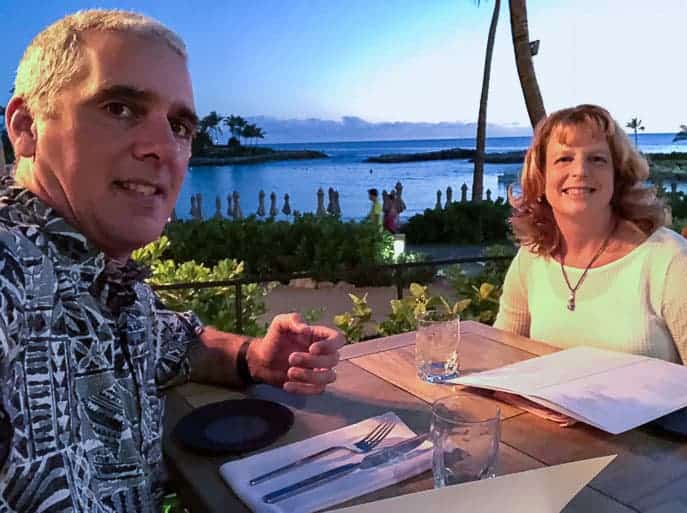
A real life example: personal story about food and date night
When I first started Weight Watchers it was so hard. Date night was always a special place for dinner with appetizers, meal and wine. At first, it was best I just didn’t go out. I didn’t have the points so I didn’t go out. But later I realized that date night was my connection to my husband. I needed to figure out other things to do for our special night that didn’t involve eating such as going for a walk or a hike. Eventually we were able to add date night with food back in. I began to choose places that had lower point/calorie choices items on their menu. Or I figured out a way to make it work such as: just have appetizers or only eat 1/2 or 1/3 of meal, etc. It takes effort but you can do it if you want to make it work!
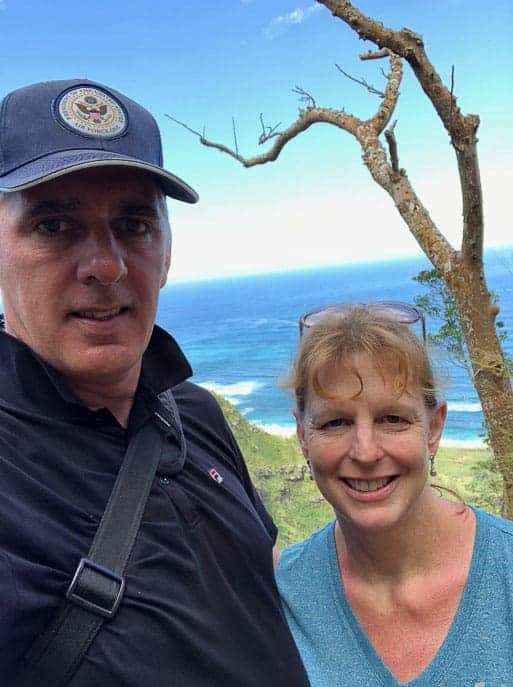
Try to find other activities to do with your spouse and family that don’t involve eating.
My husband and I discovered that we really enjoy hiking. When we go to Hawaii, we eat a light breakfast in our room, pack a lunch for our hike, then eat dinner out.
Do we really have to eat food to be social?
No, getting together for a party isn’t really about the food, although we think it is. It’s about getting together. Sometimes I think we forget that.
Before we do any kind of eating, we should ask ourselves, “Am I hungry?” If so, then we eat until we’re lightly full. If we’re not hungry, then we don’t eat. It’s so easy to say but so much harder to implement.
Losing weight and maintaining weight takes total focus
It’s easy to fall back into old patterns when we’re busy or stressed. If we’re busy, we’re looking for quick fast food or we eat what is available which may not always be healthy. If we’re stressed and focused on the family or work drama, then we may be looking for comfort food.
So what can you do?
Try and create consistent habits
When you create this consistent habits they become automatic and kick in when you’re not focused .
Some examples are:
- Ask yourself before you eat, “Am I hungry? What level is my hunger?”
- Get some kind of activity in every day – walking, gym, etc.
- Don’t eat while watching t.v.
- Track faithfully no matter what.
If you build those healthy habits so they are automatic, when your brain needs to focus on something else, those habits happen without you thinking about them.
Use tools to help keep you motivated
Tools can help you stay motivated by keeping you focused and on track. If you find they aren’t motivating you, it may be time to add some new tools to your tool box. I find I always need to switch it up. The same old tools don’t always work, you need to constantly find new ones to motivate you.
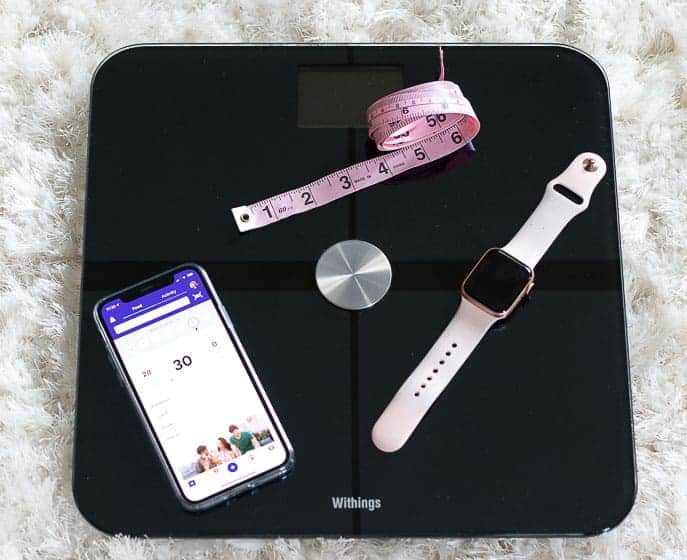
Examples of Weight Loss/ Weight Maintenance Tools
- Fitbit (paid link), Apple Watch (paid link), any tracker that tracks your activity
- Weight Watcher food tracker, itrackbites, My Fitness Pal – any tracker that tracks calorie intake
- Withings Scale (paid link), Happy Scale -any tool that helps you record your weight
- Podcasts
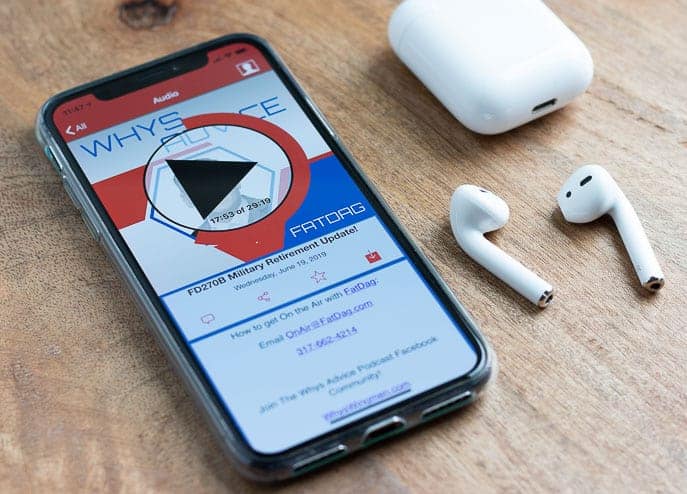
Podcasts and how they can help you stay motivated
One of my favorite tools (which helped me get to goal) is listening to the “Whys Advice,” podcast. I found this podcast on Connect (the Weight Watcher community). Mike (aka Fatdag) reads letters from other Weight Watchers about their struggles and gives advice. I listen to stories how people overcome weight issues when dealing with other major issues in their life such as cancer, death of a loved one, etc.
It’s very motivating for me. I think to myself, “If they can go for a walk at 400 pounds, I can surely get myself off the couch and go for a walk.” I downloaded the ap on Itunes, and listen to an episode every day on my morning walk. It keeps me grounded and focused. If you make a habit of listening to them at a certain time – whenever your exercising, in the car, on the bus on your way to work, it will become a healthy habit.
Other helpful tips to stay motivated:
Be prepared, have a plan!
- Have ready made food in the freezer and fridge – so you’re not tempted to eat the bad stuff.
- Plan to make one small change every week. Eventually all of those changes will add up to great habits.
If you lose focus, what do you do?
- Get back on track.
- Don’t stress about it.
- Don’t beat yourself up about it
While it’s hard to stick to a diet and not cheat, being healthy, maintaining healthy habits, is not an all or nothing approach. Many times we feel that way. But that isn’t going to lead us to success. Trying to build better habits, a little at a time, will get us where we want to go. Focus on building those healthy habits one step at a time. For example, “I’m not eating in front of the t.v.” Or “I’m only eating fruit in front of the t.v.”
Everyone loses focus at some point, it’s how we handle that and how we re-focus is key to our success! Just do it, make the effort to do one small thing and build habits from there.
You may need to learn to adapt, what once worked may not always continue to work.
A real life example:
Before Weight Watchers, my family and I ate out quite a bit. After I joined Weight Watchers we changed to only eating out for date night, that’s it. That really helped me get to goal. I could control the points because I knew what was in every dish.
When I made goal, I was always able to eat pretty much what I wanted when we went on vacation because we didn’t do it that often. I made sure to stay active (usually more active than usual -hiking, more walking etc.) I might be up a few pounds when I came home, but I was always able to get the excess weight off fairly quickly when I returned to normal habits.
However, after my food blog started taking off, I began to travel more to conferences. I found that I was gaining and because the trips were so close together, it was getting more difficult to take off the weight before the next trip.
How did I adapt?
So what did I do? I had to learned to adapt. Now I can’t just eat whatever I want on vacation or while traveling. I need to pay attention. Sure I can splurge every once in a while but I want to stay at goal so I need to start paying attention to eating when I’m out. That means eating more salads, less bread and cheese (my downfall) – but I’m ok with that.
It’s worth it!
I like being at goal or at least near goal so it’s worth it to me. But I also learned that I have to track on vacation/business trips now. It may not be perfect tracking but at least I know where I stand. It still may be hard to stick to a healthy diet and not cheat but I’m working on it. Eating healthy is a work in progress, it’s not a race to the finish line, it’s about doing your best most of the time.
What about you? Do you have”tricks” for staying on plan? What keeps you motivated and focused? How do you stick to a healthy diet and not “cheat?”
Leave me a comment in the contact section and let me know what keeps you motivated and focused.
Other helpful articles:
Healthy Tips to Help You Stay On Track During the Holidays
6 Strategies for Handling Weight Loss Interruptions
